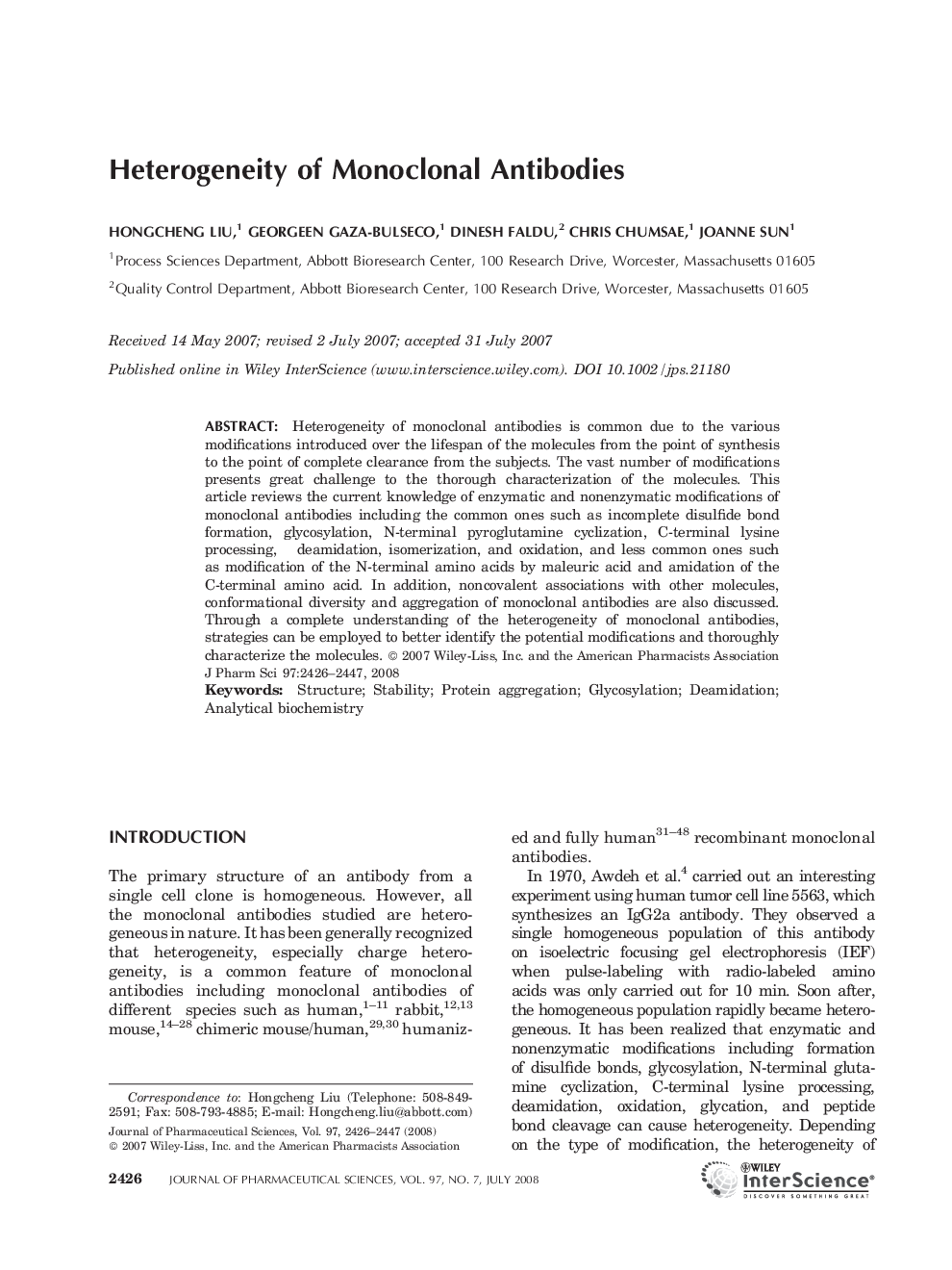| Article ID | Journal | Published Year | Pages | File Type |
|---|---|---|---|---|
| 2485512 | Journal of Pharmaceutical Sciences | 2008 | 22 Pages |
Abstract
Heterogeneity of monoclonal antibodies is common due to the various modifications introduced over the lifespan of the molecules from the point of synthesis to the point of complete clearance from the subjects. The vast number of modifications presents great challenge to the thorough characterization of the molecules. This article reviews the current knowledge of enzymatic and nonenzymatic modifications of monoclonal antibodies including the common ones such as incomplete disulfide bond formation, glycosylation, N-terminal pyroglutamine cyclization, C-terminal lysine processing, deamidation, isomerization, and oxidation, and less common ones such as modification of the N-terminal amino acids by maleuric acid and amidation of the C-terminal amino acid. In addition, noncovalent associations with other molecules, conformational diversity and aggregation of monoclonal antibodies are also discussed. Through a complete understanding of the heterogeneity of monoclonal antibodies, strategies can be employed to better identify the potential modifications and thoroughly characterize the molecules.
Related Topics
Health Sciences
Pharmacology, Toxicology and Pharmaceutical Science
Drug Discovery
Authors
Hongcheng Liu, Georgeen Gaza-Bulseco, Dinesh Faldu, Chris Chumsae, Joanne Sun,
